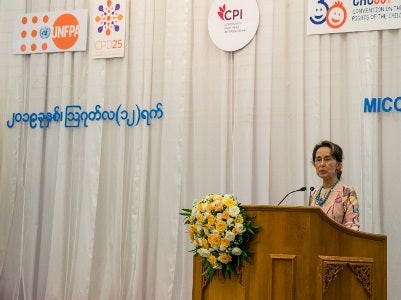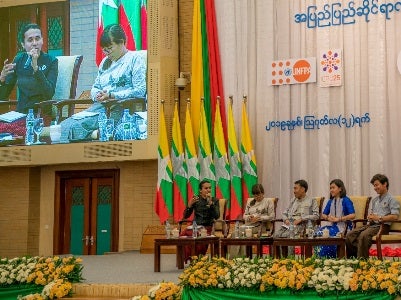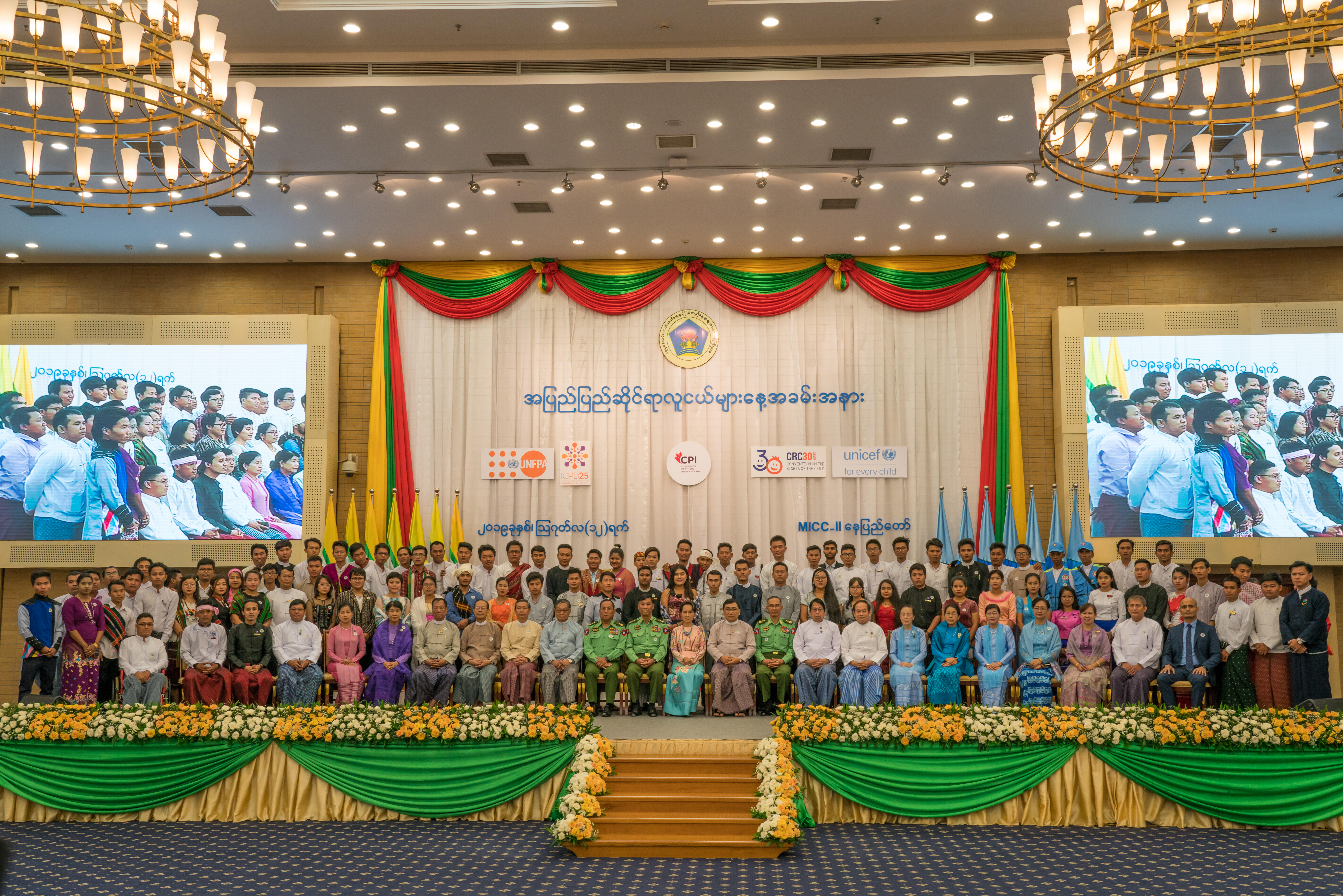Nay Pyi Taw, Myanmar – “The education system must be all-inclusive, enabling participation regardless of sex, being rich or poor, or from rural or urban areas. Only then can all the youth have the advantage and use it to full extent,” State Counsellor Daw Aung San Suu Kyi stressed during her opening speech at International Youth Day (IYD) 2019 Event in Nay Pyi Taw.
The theme of International Youth Day 2019, “Transforming Education” highlights efforts to make education more inclusive and accessible for all youth, including youth themselves. Rooted in 2030 Agenda’s Goal no. 4 for Sustainable Development “to ensure inclusive and equitable quality education and promote lifelong learning opportunities for all”, IYD 2019 guides governments, young people and community organizations to transform education and it then becomes a powerful tool to achieve the 2030 Agenda for Sustainable Development.

Myanmar’s population structure now has the tell-tale youth bulge that opens the window for a “demographic dividend”. Over half of Myanmar’s population is below 27 years. That is 27 million people, and the majority of those are already of working age or will very soon become of working age. In 2035, Myanmar will reach the point when the vast majority (67 percent) of its people are of working age. This is a unique situation, and this is why young people are the country’s greatest asset. This is why they all need to have equal access to quality education regardless of their origin, race and ethnicity.

For the vast majority of families in Myanmar, sexuality is still a topic associated with shame and taboos. As a result, whole generations of young women and men grow up without vital knowledge of their bodies, gender identities, or safe sex. In the absence of this information, young people may often experience anxiety in intimate relations; this lack of knowledge may lead to unwanted pregnancies, or even to sexually transmitted infections hampering young people from reaching their full potential,” UNFPA Country Representative for Myanmar Mr. Ramanathan Balakrishnan highlighted the importance of country-wide Comprehensive Sexuality Education (CSE) for young people of Myanmar.
UNFPA, the United Nations sexual and reproductive health agency, advocates for rights-based, gender-responsive, Comprehensive Sexuality Education to be provided in schools as well as outside of schools. Moreover, UNFPA equipped young people with leadership skills to promote meaningful participation in policy formulation and peace processes. In 2018, over 70,000 of adolescents and young people in Myanmar received Sexual and Reproductive Health and Right information and services through youth-friendly health services, educational sessions, family planning counselling, and a mobile phone application “Love Question, Life Answer”. Myanmar has adopted youth policy as a guideline for the welfare and development of young people. UNFPA is closely working with the Government of Myanmar in the development of the nation’s first ever National Youth Policy and its associated implementation of strategy.
Mr. Ramanathan Balakrishnan, the UNFPA Representative, added “The education sector should be no exception. What if the barriers for youth leadership were to disappear? Then young innovators would use their creative thinking, and their hunger for change to step up transformation of Myanmar’s education.”

Marking the 25th anniversary of International Conference on Population and Development (ICPD25), this International Youth Day 2019 is not only just a special occasion to address youth participation in transformation of education but it is a global call for everyone to march the road to Nairobi Summit in November 2019 where UNFPA with governments, young people, private sectors, community partners, will come together to accelerate the promises of Cairo Summit 1994 in which the right to education with particular attention to women and girls is included.


